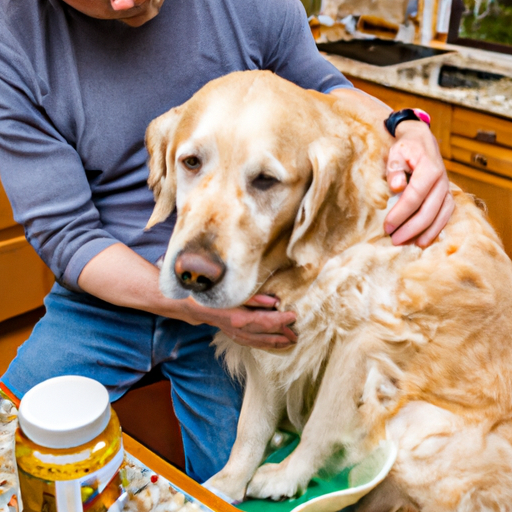Just like humans, dogs can also experience nausea, which can be quite distressing for them and their caregivers. The discomfort it brings can make your furry friend feel miserable, which is why it’s essential to understand how to help alleviate their symptoms. This article will explore the causes of nausea in dogs, signs to look out for, and effective remedies to help your dog feel better.
Table of Contents
- Understanding Nausea in Dogs
- Causes of Nausea in Dogs
- Signs of Nausea in Dogs
- Remedies for Nausea in Dogs
- Frequently Asked Questions
Key Takeaways
– Dogs can experience nausea due to various causes, including motion sickness, dietary indiscretion, and underlying health problems.
– Signs of nausea in dogs include excessive drooling, vomiting, and decreased appetite.
– Various remedies can help alleviate nausea in dogs, including dietary changes, medication, and natural remedies.
Understanding Nausea in Dogs
Nausea is the sensation of discomfort in the stomach, often accompanied by the urge to vomit. In dogs, it can be a result of various factors, ranging from simple dietary indiscretion to more complex health problems. Let’s dive deeper into what might cause nausea in your dog.
Causes of Nausea in Dogs
Several factors can cause nausea in dogs. Here are a few common ones:
- Motion Sickness: Just like humans, dogs can also experience motion sickness, especially during car rides. This can lead to feelings of nausea and discomfort.
- Dietary Indiscretion: Dogs are known to eat things they shouldn’t, which can upset their stomachs and cause nausea.
- Underlying Health Problems: Certain health conditions, such as kidney or liver disease, can cause nausea in dogs.
The best way to determine the cause of your dog’s nausea is to consult with a veterinarian. They can perform various tests to diagnose the problem accurately and suggest the most effective treatment plan.
Signs of Nausea in Dogs
Recognizing the signs of nausea in dogs can be tricky, as they can’t tell us how they’re feeling. However, there are several signs you can look out for:
- Excessive drooling
- Vomiting
- Decreased appetite
- Lethargy
If your dog is showing any of these signs, it’s important to consult with a veterinarian immediately. They can provide you with the necessary guidance to help your dog feel better.
Remedies for Nausea in Dogs
There are several ways to help alleviate nausea in your dog. Here are a few effective remedies:
Dietary Changes
Switching to a bland diet can help soothe your dog’s upset stomach. Foods like boiled chicken and rice are gentle on the stomach and can help alleviate nausea. If you’re unsure about what to feed your dog, consult with a veterinarian. They can provide you with a diet plan that’s suitable for your dog’s specific needs.
Medication
There are several medications available that can help alleviate nausea in dogs. These include anti-nausea drugs, antacids, and probiotics. Always consult with a veterinarian before giving your dog any medication.
Natural Remedies
Certain natural remedies, such as ginger and chamomile, can help soothe an upset stomach. However, it’s important to consult with a veterinarian before trying any natural remedies. They can provide you with the necessary guidance on dosage and safety.
For more information on dog health and wellness, check out One Top Dog. They have a wealth of resources on various topics, such as how to keep your dog healthy and tips on feeding your dog.
Frequently Asked Questions
Q: Can I give my dog human anti-nausea medication?
A: No, it’s not safe to give your dog human medication without consulting with a veterinarian. Some human medications can be toxic to dogs.
Q: How long does dog nausea last?
A: The duration of nausea in dogs can vary depending on the cause. If your dog’s nausea is due to motion sickness, it may subside once the motion stops. However, if it’s due to an underlying health problem, it may persist until the condition is treated.
Q: Can dog nausea be prevented?
A: Some causes of dog nausea, such as motion sickness and dietary indiscretion, can be prevented. For example, you can help prevent motion sickness by gradually acclimating your dog to car rides. You can prevent dietary indiscretion by keeping harmful substances out of your dog’s reach.
Remember, your dog’s health and wellbeing are paramount. If you suspect your dog is feeling nauseous, don’t hesitate to consult with a veterinarian. They can provide you with the necessary guidance to help your dog feel better.



